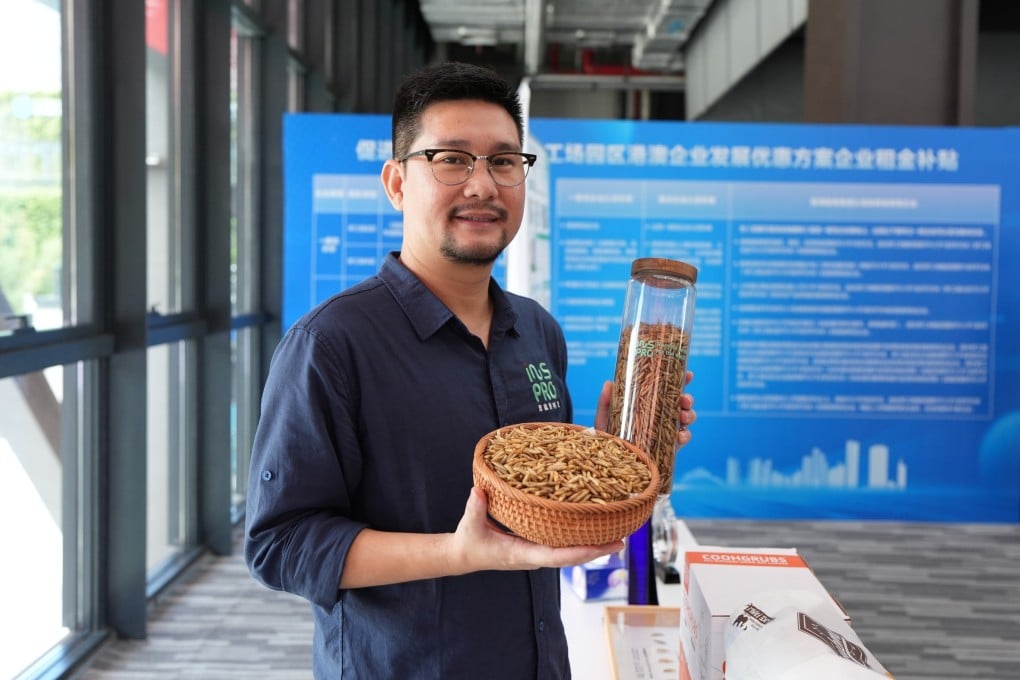Why 2 Hong Kong entrepreneurs decided to move their start-ups over mainland China border
- Biotech firm founder Elvis Yu and AI content company founder Wang Cong explain why they moved to Qianhai, but Hong Kong is key to plans

Hong Kong has the edge to take products global but must roll out additional preferential policies and expand its talent pool to attract businesses, two start-up founders who moved their business across the border due to manpower constraints have said.
Elvis Yu Guangtao, who founded biotechnology firm Inspro Science in 2019, had won a start-up competition organised by the Trade Development Council as he was planning to build the firm. But he ultimately chose to set up his business in Qianhai in Shenzhen instead, owing to difficulties in finding suitable talent in Hong Kong.
His company produces fertiliser and pet food using insect protein and intends to explore its industrial uses as a sustainable alternative source of nutrients.
“This industry is quite unique, as we need to integrate skills across disciplines from biotechnology to automation and artificial intelligence,” Yu said. “Talent in these areas is relatively lacking in Hong Kong or it’s harder to find suitable candidates, not to mention the costs to do so.”
But entrepreneurs who have made the move, such as Yu, were not abandoning Hong Kong, as they felt the city remained attractive due to its ability to connect their products with a global market, but Qianhai in Shenzhen also had much to offer.
Qianhai is one of four special economic zones, in addition to Nansha in Guangzhou, Hengqin in Zhuhai and Hetao in Shenzhen, located in the Greater Bay Area, Beijing’s plan to develop Hong Kong, Macau and nine cities in Guangdong province into a hi-tech economic powerhouse by 2035.
